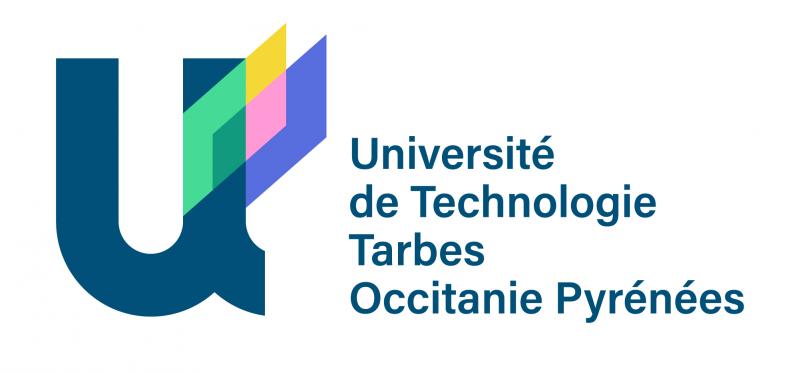Non-destructive evaluation of bio-based and geo-based structures for construction using Infrared Thermography
| ABG-134468 | Stage master 2 / Ingénieur | 5 mois | 600€ |
| 20/11/2025 |

- Sciences de l’ingénieur
- Génie civil, BTP
Établissement recruteur
Site web :
This work will be carried out in collaboration between the LMDC (Laboratory of Materials and Durability of Construction) and ICA (Institut Clément Ader) laboratories, that have local departments housed at the University of technology in Tarbes UTTOP, in the South-West of France.
The LMDC is a research laboratory specialized in the science of civil engineering materials and structures. It offers scientific solutions for the sustainable development and eco-responsible management of buildings, civil engineering infrastructures and housing.
ICA is a research laboratory that focuses on the study of structures, systems and mechanical processes. Their works focus on behavior modeling, instrumentation and the study of the durability of the structures or products considered, mainly for aerospace and transport industry.
Description
Context
The construction sector is currently undergoing a major transformation of its practices to accelerate the energy and environmental transition. The use of materials with low environmental impact represents a unique opportunity to reduce greenhouse gas emissions and limit the use of primary resources [1]. Bio-based concretes have low enough thermal conductivity to be considered for use in distributed insulation (where the filling material itself acts as insulation), while raw earth materials, due to the affinity of clays with water molecules, are particularly interesting for moisture regulation in buildings.
In recent years, numerous studies have been conducted on the formulation, characterization, and optimization of bio-based and geo-sourced products for various applications, demonstrating their strong potential [2]. However, the lack of knowledge about the long-term properties of these composites is a real scientific obstacle that continues to limit their growth. The sensitivity of bio-based products to the environment (temperature, humidity, pH, etc.) raises issues of durability and changes in their properties over time. Some changes in these properties linked to water absorption by plant aggregates have been observed in hemp concrete [3]. The clay fraction of earth plasters, which is responsible for their excellent moisture-regulating capacity, also causes significant internal stresses during drying, leading to cracking.
The e-TRUST project aims to contribute to the experimental characterization of these issues relating to the aging of bio-based and geo-based materials used in civil engineering by proposing a non-destructive evaluation approach developed in mechanical engineering. The idea is to use thermal field measurements by InfraRed Thermography (IRT), which has proven effective in detecting damage to CFRP composites, particularly in previous collaborative projects on the Tarbes campus (LGP/ICA). The breakthrough idea behind e-TRUST project is to demonstrate the feasibility of applying IRT and the resulting benefits for new scientific issues that are fundamental to UTOP's research.
Scientific issues and methodology
To broaden the scope of research into bio-based and geo-sourced materials, two types of materials will be considered:
- lightweight composites combining agricultural by-products (hemp shives, sunflower) with a mineral matrix (lime, earth) for use in distributed insulation,
- raw earth plasters, composed of sand, clay, and water, intended for application as an interior finishing coat.
These materials will be subjected to aging cycles involving water sorption/desorption, causing swelling and shrinkage. This process affects the plant aggregates in the composites and the clay in the earth-based materials.
The consequences on their thermal response will be measured. The induced cracking should appear deep down in the bio-based composites and on the surface of the earth plasters. IRT will be used for different levels of aging through NDT analysis on earth plasters to determine the location and level of cracking invisible to the naked eye and to monitor the response of bio-based composites subjected to mechanical testing.
The project will involve the following stages:
- a bibliographic study on bio-based and geo-sourced building materials and IRT (principle, applications),
- the development of an experimental TIR protocol adapted to these materials,
- characterizations under hygric aging conditions.
- redaction of a scientific publication.
[1] T. Lecompte, Matériaux biosourcés pour le bâtiment : notions d’équilibre et indicateurs de réchauffement climatique, Acd. J ; Civ. Engng 40 (2022).
[2] M. Lagouin et al., Moisture buffer capacity of a bilayer bio- and geo-based wall, Constr. Build. Mater. 329 (2022).
[3] G. Delannoy et al., Durability of hemp concretes exposed to accelerated environmental aging, Constr. Build. Mater. 252 (2020).
Expected results
This work will enhance the characterization of bio-based materials. It will contribute to the development and optimization of civil engineering buildings materials, enabling new and more durable designs. The resulting publications (journal articles and conference presentations) will help to increase knowledge of the subject and disseminate it internationally.
This position will allow to develop strong skills in several fields (manufacturing and characterization of materials, radiation measurements, data processing) on a promising and current subject. The optimization of construction technological systems and the strong need for qualified people in durable solutions should provide several career opportunities, either industrial or research.
Profil
Knowledge of bio-based materials and experience in materials characterization is required. Additional skills in the development of experimental testing devices and/or non destructive techniques would also be desirable.
Applicants must demonstrate organizational and rigor qualities for planning and monitoring the different stages of the work. Also, they must be able to work independently and in a team within an international environment. Excellent English reporting and communication skills, as well as a proactive attitude towards solving problems are strongly needed.
Prise de fonction
Vous avez déjà un compte ?
Nouvel utilisateur ?
Vous souhaitez recevoir nos infolettres ?
Découvrez nos adhérents
 MabDesign
MabDesign  SUEZ
SUEZ  TotalEnergies
TotalEnergies  CESI
CESI  MabDesign
MabDesign  PhDOOC
PhDOOC  Ifremer
Ifremer  Groupe AFNOR - Association française de normalisation
Groupe AFNOR - Association française de normalisation  Généthon
Généthon  CASDEN
CASDEN  Laboratoire National de Métrologie et d'Essais - LNE
Laboratoire National de Métrologie et d'Essais - LNE  ANRT
ANRT  Nokia Bell Labs France
Nokia Bell Labs France  Tecknowmetrix
Tecknowmetrix  Aérocentre, Pôle d'excellence régional
Aérocentre, Pôle d'excellence régional  ASNR - Autorité de sûreté nucléaire et de radioprotection - Siège
ASNR - Autorité de sûreté nucléaire et de radioprotection - Siège  ADEME
ADEME  ONERA - The French Aerospace Lab
ONERA - The French Aerospace Lab  Institut Sup'biotech de Paris
Institut Sup'biotech de Paris

